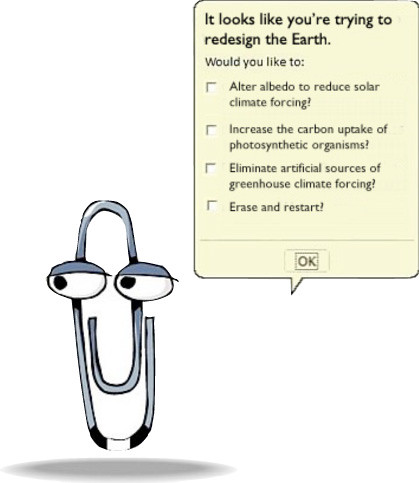Pantheon
 "We are as gods and might as well get good at it." -- Stewart Brand, the Whole Earth Catalog, 1968.
"We are as gods and might as well get good at it." -- Stewart Brand, the Whole Earth Catalog, 1968.
Stewart Brand's observation has simultaneously enchanted, terrified, and driven me ever since I first heard it (probably some 20-25 years after he wrote it). It's both an admonition (we're not very good at being gods) and encouragement (...but we could be!); Brand saw that our capabilities as humans (when using the tools devised by human minds) equalled or exceeded most of the capabilities of the gods of myth, and even those abilities not yet in our toolkit would likely be right over the horizon. Brand also saw that our sense of ourselves, and our responsibility to the world, remained firmly rooted in simple humanity.
"We have more power than we think we do," he seemed to be saying, "and we can't use it wisely until we acknowledge that fact."
The statement can be critiqued from a number of perspectives, and has been. (My own push-back against it these days is that it has the equation exactly backwards. Gods are just people who can truly see the extent of their power.) But there's one observation about the "We are as gods..." line that I haven't seen elsewhere -- and it requires a little digression.
Matt Jones at BERG London asked me to participate in the "Tomorrow's World" event they were putting on for Internet Week Europe. "A night of drinks and ten minute talks" was the capsule description, and everyone who spoke had been asked to talk about the "near-future of..." some idea. Matt asked me to talk about the near-future of redesigning the planet.
I'm sure Matt expected that I'd do a quick geoengineering song-and-dance, and that was my original plan. But the more I thought about the topic, lying in bed at 4am cursing jet lag, the more I realized that I needed a different direction. And then I remembered the Brand line, and was struck by something I hadn't heard anyone else say.
"We are as gods --" okay, but which gods? In our generally monotheistic age, we tend to lump all "gods" and "godlike powers" into a bucket of Almighty Power. But that's not the way humans have thought of gods until relatively recently; for much of human civilization, gods were seen as individuals, with their own personalities, domains, and entries in an AD&D manual.
We are gods, but we're the gods of an earlier age. Powerful, yes, but petulant; wise yet warlike; arrogant and utterly capricious... and also able to create sublime beauty. The Greek gods were the ones that came to mind last week, but really nearly every mythic pantheon followed a similar pattern.
We are as gods, but we have gotten pretty good at it -- as long as we remember that this means we are as likely to be Loki as Athena.






Comments
How do we say what Stuart said and avoid the hubris of what we felt when we first heard it? I think I believed him back then about "being as Gods". I was young. I'm no longer young. I even confess to being a bit nervous around young people who still feel as Gods - well, not THAT nervous.
But haven't we also learned as a culture since then about how terribly and magnificently complex all things are. How even Gods take time working things out and make lots of relatively short-lived dead end tries. How we need to realize deeply that "one does nothing and nothing is left undone" in order to breathe and live our lives free to "not know" what we are really doing?
The god-like power we have been warned about in robotics, genetic engineering, and nanotechnology, if misused, will meet with the same reaction and resistance that the god-like power of the monied 1% is currently feeling. Most of us have no access to those developments.
Few of us can be in either the 1% of money or the 1% of scientific and technological change. Few of us are really at all like Gods.
But perhaps even the 99% need to get good at not being as Gods - just watching more closely those who are.
Posted by: Steve Weinberg |
November 23, 2011 10:43 PM
|
November 23, 2011 10:43 PM